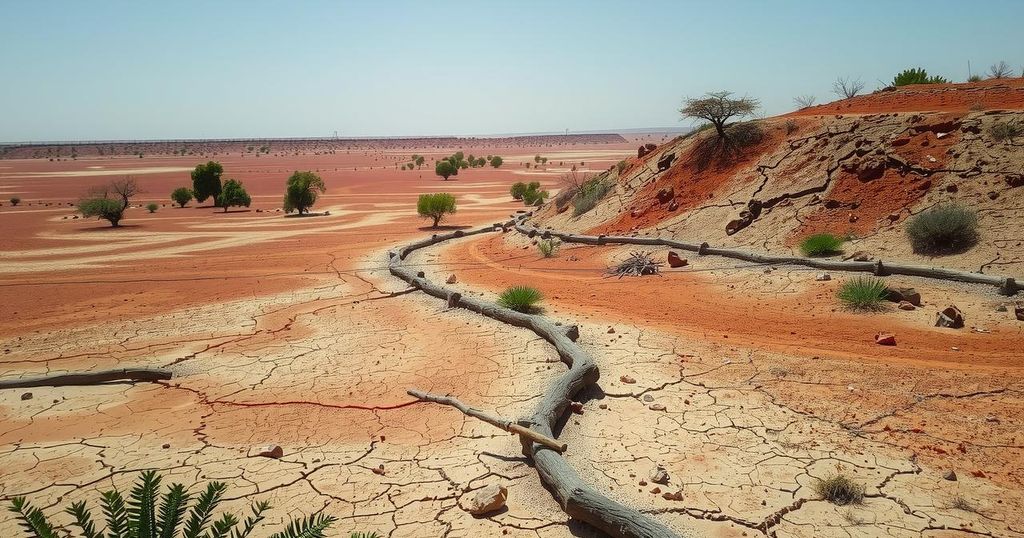Kenya’s Severe Drought: The Worst in Four Decades Calls for Urgent Global Support
Kenya faces its worst drought in 40 years, impacting millions through severe shortages of water and food. Climate change has worsened conditions reliant on agriculture and livestock. The situation was highlighted during COP29, where Kenya sought financial support to combat the crisis, resulting in the Baku Climate Unity Pact aimed at aiding vulnerable nations.
Kenya is currently grappling with a severe drought, the most extreme experienced in 40 years, affecting millions due to a scarcity of water and food supplies. This drought has escalated over recent years, departing from the usual seasonal patterns that previously dictated agricultural cycles. Climate change has exacerbated the living conditions of populations reliant on farming and livestock, particularly in arid and semi-arid regions.
The United Nations reports that the ongoing water crisis in Kenya has resulted in millions lacking stable access to potable water as rivers, lakes, and aquifers continue to deplete. In northern Kenya, women and children face increasingly arduous journeys, often traveling significant distances to obtain contaminated water, leading to health risks such as infections and diseases.
During the 2024 UN Climate Change Conference (COP29) in Baku, Azerbaijan, Kenya emphasized the need for enhanced financial assistance from developed nations to implement adaptation strategies aimed at mitigating their current crisis. The conference resulted in the “Baku Climate Unity Pact,” designed to establish new collective financial objectives to bolster support for vulnerable countries, including those impacted by climate change with minimal industrial activity and greenhouse gas emissions involvement.
COP29’s outcomes reflect a global commitment to assist the most affected nations in fostering resilience against climate-related challenges. However, converting these commitments into impactful actions remains a critical challenge to alleviate the drought’s devastating effects on Kenya and similarly situated countries.
The drought situation in Kenya is unprecedented, affecting millions and significantly diminishing access to essential resources like water and food. Traditionally impacted areas have seen agricultural dependency falter with the changing climate, implicating both local economies and community health. The United Nations has classified Kenya’s current water crisis as the worst in four decades, prompting international dialogue on the urgent need for support and financial assistance, particularly highlighted at COP29.
In conclusion, the drought in Kenya marks a serious humanitarian crisis, exacerbated by climate change and economic vulnerabilities. The need for international support is imperative, as illustrated by the developments at COP29. Moving forward, translating financial commitments into actionable solutions will be vital in alleviating the suffering of millions affected by this drought and in safeguarding against future climatic events.
Original Source: www.aljazeera.com




Post Comment